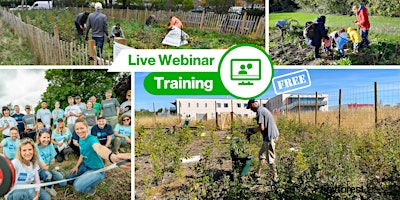Events
Come along and join one of our events! Help us plant a Tiny Forest in planting season or come along to a Tiny Forest Discovery Day. Learn more about our science and our programmes by joining a webinar. Become a volunteer or a citizen scientist and join our community. Whatever your interest, there are events for everyone.
Join Earthwatch Europe on this webinar supporting schools to engage with their local Tiny Forest! Read More »
Join Earthwatch on this webinar introducing you to your new role as a Tree Keeper of your Tiny Forest! Read More »
Join us for a Tiny Forest Planting Day of Borrons Rd, Ambleside Read More »
Join us for a Tiny Forest Planting Day at Sourton Services, Devon Read More »




